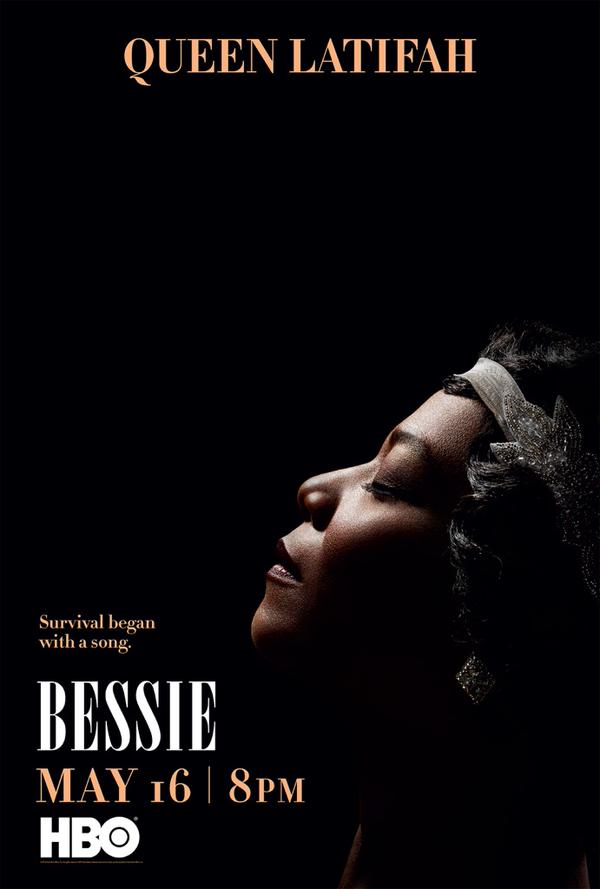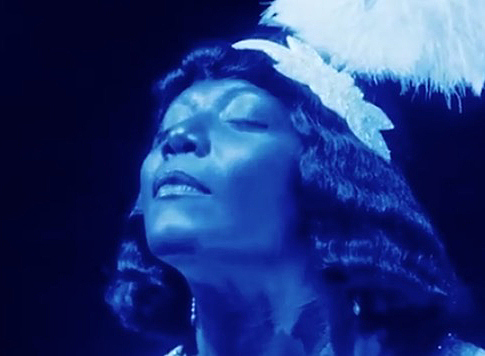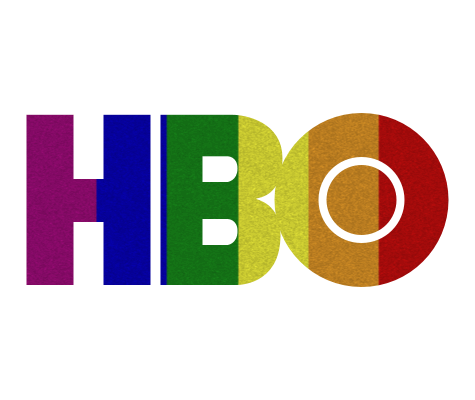HBO’s LGBT History: Bessie (2015)
 Wednesday, March 30, 2016 at 7:00PM
Wednesday, March 30, 2016 at 7:00PM Manuel is working his way through all the LGBT-themed HBO productions.
 Last week we looked at the grim, if necessary, doc Hunted: The War Against Gays In Russia which dove right into the ugly homophobic “hunting gays for sport” pastime which has been legitimized by a Russian government that, ahead of the Sochi Olympics, passed propaganda legislation that made it all but illegal to openly support and advocate for gay rights. This week, we’re turning our eyes to Dee Rees’s Bessie.
Last week we looked at the grim, if necessary, doc Hunted: The War Against Gays In Russia which dove right into the ugly homophobic “hunting gays for sport” pastime which has been legitimized by a Russian government that, ahead of the Sochi Olympics, passed propaganda legislation that made it all but illegal to openly support and advocate for gay rights. This week, we’re turning our eyes to Dee Rees’s Bessie.
It’s a film that’s already been discussed quite a bit around these quarters. Angelica Jade Bastién wrote an in-depth review upon the film's release which, as she reminds us, “wonderfully explores the way black people relate to each other.” Anne Marie looked at it as part of her Women’s Pictures series, singling out the way queerness and blackness dominate the proceedings. I won’t rehearse their arguments because, frankly, I don’t think I could improve on their canny assessments of this ambitious film. Instead, I figure we could use the film to talk about the oppressively whitewashed LGBT representation that even a forward-thinking network like HBO cannot help but replicate.
Just as I was sitting down to write this piece, thinking that perhaps I was setting myself up for the usual cries of “ugh, another diversity article? Why must the PC police continue thumping that tired ass drum?” a mini-tweetstorm kerfuffle was taking place.
“The White Gay Establishment likes a ‘Southern Black Gay who don't ask too many questions’ and can ‘YASS GIRL’ for them” — that’s Mykki Blanco, dropping the mic.
I remember, but "Gay Media" is failing a majority of LGBTQ people, no inclusion, no visibility @outmagazine pic.twitter.com/k2XViMd7Tc
— MYKKI BLANCO (@MykkiBlanco) March 29, 2016
You should read his entire feed right now which has plenty more tea to spill. What he’s getting at is precisely what should seem obvious to anyone who sees how LGBT history is made and portrayed. Openly gay media outlets continue to privilege the gay white male, and that’s certainly been something that cannot be denied when we look at the many prestige productions we’ve looked at this past year. Prior to Bessie, only one other film had tackled the intersection of LGBT issues and race: Cheryl Dunye’s Stranger Inside. Think about that for a minute and try to not be wholly disappointed in such an imbalance.

This is obviously something that I often think about, and what led me to come up with 100 queer non-white characters last summer, just as a challenge to myself but also to show that these stories are being told, but sometimes not in the most mainstream or most accessible platforms. And so, as much as HBO as we have seen, has been at the forefront of LGBT representation, whether tackling the AIDS crisis in stride, or offering complex gay characters in longform narratives, race remains a rather glaring blind spot. I mean, how is it that I can list the number of times we've talked about about LGBT characters of color without losing count (1, 2, 3, 4, 5, 6, 7) yet run out of fingers while counting the white ones?
But in many ways, the flip side of this question has obviously to do with class. Even when we’ve encountered non-white characters (like in The Wire, Oz or True Blood), race and class are intertwined in very interesting ways, having the inadvertent result of giving us fascinating non-white characters that are tied to the lower classes. We see this too in Bessie and Stranger Inside. These are stories worth telling but one wishes that they were complemented and offset by the type of work that Patrik Ian Polk (Noah’s Arc, The Skinny), to use a contemporary example, produces. Basically, I just want Shonda or Oprah (or Ava!) to give me a show centered on a high-powered black lesbian soon.
One wishes projects like Happy Birthday, Martha! were picked up by HBO in the same way they've thrown their weight behind other LGBT rights champions over the years—I can't wait to see Mya Taylor knock that part out of the park. Then again, that a show like Looking that put two gay Latino characters at its center was still accused of being whitewashed may suggest that there a larger leaps to be made, especially since you'll note that Asian, Native American, and Latino depictions barely bubble up in these types of conversations. It may very well be that Netflix (with Sense8, Orange is the New Black, and the upcoming The Get Down), given its global scope has a better idea of where and how diversity can produce high quality programming (then again, they also gave us Grace & Frankie, so it's hard to make these generalizations across the board).


Fun Awards Fact: This was the 9th consecutive win for HBO in the Outstanding Television Movie Emmy category, but the first one this century to feature an all-black cast. Looking at the latest HBO offerings (which favor U.S. politics) it’s hard to forget that they had a string of Emmy successes headlined by Alfre Woodard (Miss Evers' Boys), Ving Rhames (Don King: Only in America), and Don Cheadle (A Lesson Before Dying) back in the late 90s.
Next Week: We return to a familiar face for us as we look at Larry Kramer in Love & Anger. I love Kramer, but is he on HBO's payroll at this point?
 HBO,
HBO,  HBO LGBT,
HBO LGBT,  Queen Latifah,
Queen Latifah,  bessie
bessie 


Reader Comments (4)
The thing with Looking being whitewashed was so bizarre. It's as if people didn't even watch the show to see (also Agustin's boyfriend in season one).
Controlling media interest lives inside a white supremacist patriarchy. Something else to consider is the cultural conservatism of nonwhite groups. When I was a kid I saw images of white gay activists protesting in the streets. Despite catching only random glimpses of nonwhite participants I always felt the general thrust of gay rights was about me. Now I find myself resenting the racism of non-black gays and their shallow inability to see themselves appropriating black gay culture through their speech and style.
Glenn,
"Looking" definitely suffered unfairly for claims that it was whitewashed. I do think that people saw Jonathan Groff foregrounded in the marketing (an actor who, for a lot of non-white gays sensitive about whitewashing represents the fulcrum of white gay narratives) and judged it unfairly, which is a shame because it's got a lot on its mind and actually addresses a lot of those issues intelligently and sensitively.
nice post....!
ICSE Result 2016
ICSE Result 2016
ICSE Result 2016